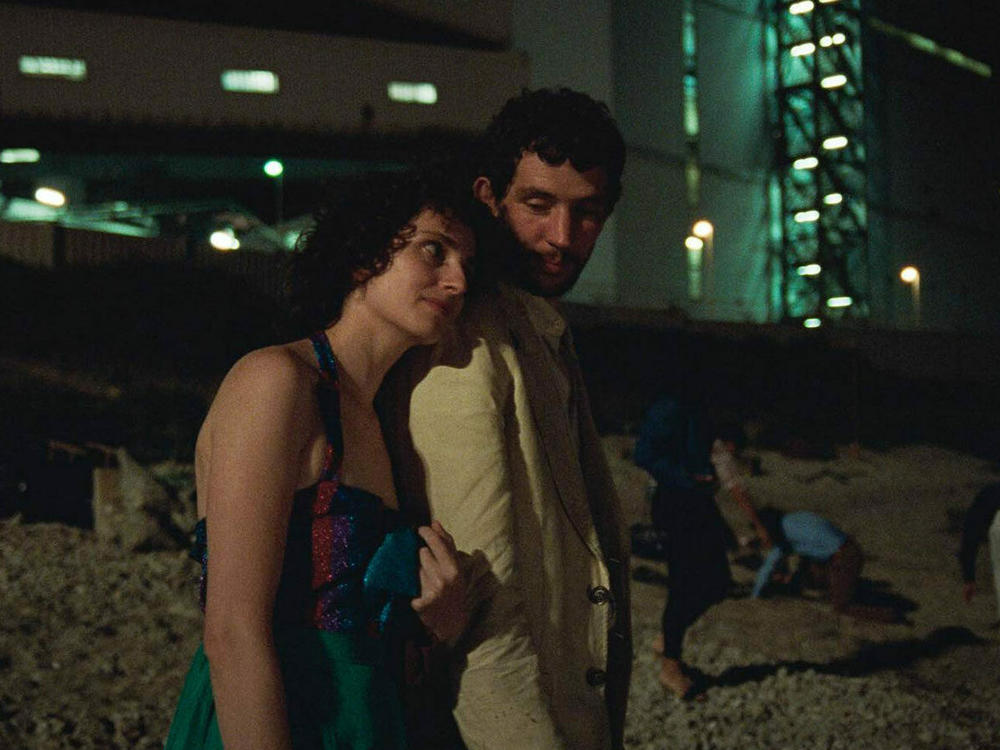Section Branding
Header Content
'La Chimera' is marvelous — right up to its most magical ending
Primary Content
The wonderful 42-year-old filmmaker Alice Rohrwacher practices a kind of cinema that I've come to think of as "Italian magical neorealism." She gives us portraits of hard-scrabble lives in poor rural communities, but they're graced by a whimsical, almost fable-like sense of enchantment.
Rohrwacher's 2014 film, The Wonders, was a lyrical drama about a family of Tuscan beekeepers. She followed that in 2018 with Happy as Lazzaro, about a group of sharecroppers on a tobacco farm whose story moves from picaresque comedy to aching tragedy.
Her marvelous new movie, La Chimera, follows in much the same vein, with one key difference. While Rohrwacher has generally worked with non-professional Italian actors, this time she's cast the English actor Josh O'Connor, best known for his Emmy-winning performance as a young Prince Charles on The Crown.
But O'Connor's character here doesn't give off even a whiff of royalty, even if his name is Arthur. When we first meet him, he's asleep on a train bound for his old stomping grounds in Tuscany. He's just been released from prison after serving some time for the crime of grave robbing.
Arthur has a mysterious archeological talent: Wielding a divining rod, he can detect the presence of buried artifacts, many of which date back to the Etruscan civilization more than 2,000 years ago. Arthur works with a group of tombaroli, or tomb raiders, who rely on him to figure out where to dig.
Upon his return, many of those old friends welcome him back with a parade — one of several moments in which Rohrwacher briefly channels the vibrant human chaos of a Fellini film. Arthur is a little reluctant to rejoin his old gang, since they let him take the rap after their last job. But he doesn't seem to have anything else to do, or anywhere else to go. He may be an outsider — his Italian throughout is decent but far from perfect — but it's the only place in the world that feels remotely like home. And O'Connor plays him with such a deep sense of melancholy that it feels almost special when his handsome, careworn face breaks into a warm smile.
It's not immediately clear what Arthur wants; unlike his cohorts, he doesn't seem all that interested in making money off their spoils. The answer turns out to lie in his dreams, which are haunted by a beautiful young woman named Beniamina — the love of his life, whom he's lost under unclear circumstances.
And so Arthur's determination to go underground becomes a metaphor for his longing for an irretrievable past: Beniamina is the Eurydice to his Orpheus, and he wants her back desperately.
Arthur is still close to Beniamina's mother, Flora, played with a wondrous mix of warmth and imperiousness by the great Isabella Rossellini. Her presence here made me think of her filmmaker father, the neorealist titan Roberto Rossellini — a fitting association for a movie about how the past is forever seeping into the present.
One of the pleasures of Rohrwacher's filmmaking is the way she subtly blurs our sense of time. La Chimera is set in the 1980s, but it could be taking place 20 years earlier, or 20 years later. Rohrwacher and her brilliant cinematographer, Hélène Louvart, shot the movie on a mix of film stocks and sometimes tweak the image in ways that evoke the cinematic antiquities of the silent era. As sorrowful as Arthur's journey is, there's a playfulness to Rohrwacher's sensibility that keeps pulling you in, inviting you to get lost in the movie's mysteries.
One of the story's most significant characters is Italia, played by the Brazilian actor Carol Duarte, who works in Flora's household. Italia is a bit of an odd duck with a beguiling bluntness about her, and she might be just the one to pull Arthur out of his slump and get him to stop living in the past.
I won't give away what happens, except to say that La Chimera builds to not one but two thrilling scenes of underground exploration, in which Arthur must finally figure out his life's purpose — not by using a divining rod, but by following his heart. And it leads to the most magical movie ending I've seen in some time, and also the most real.
Bottom Content




